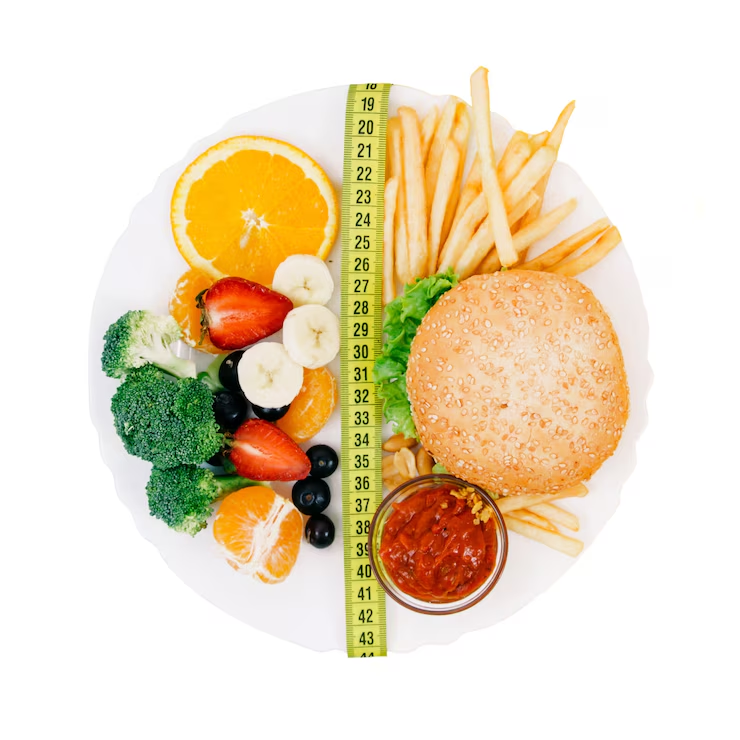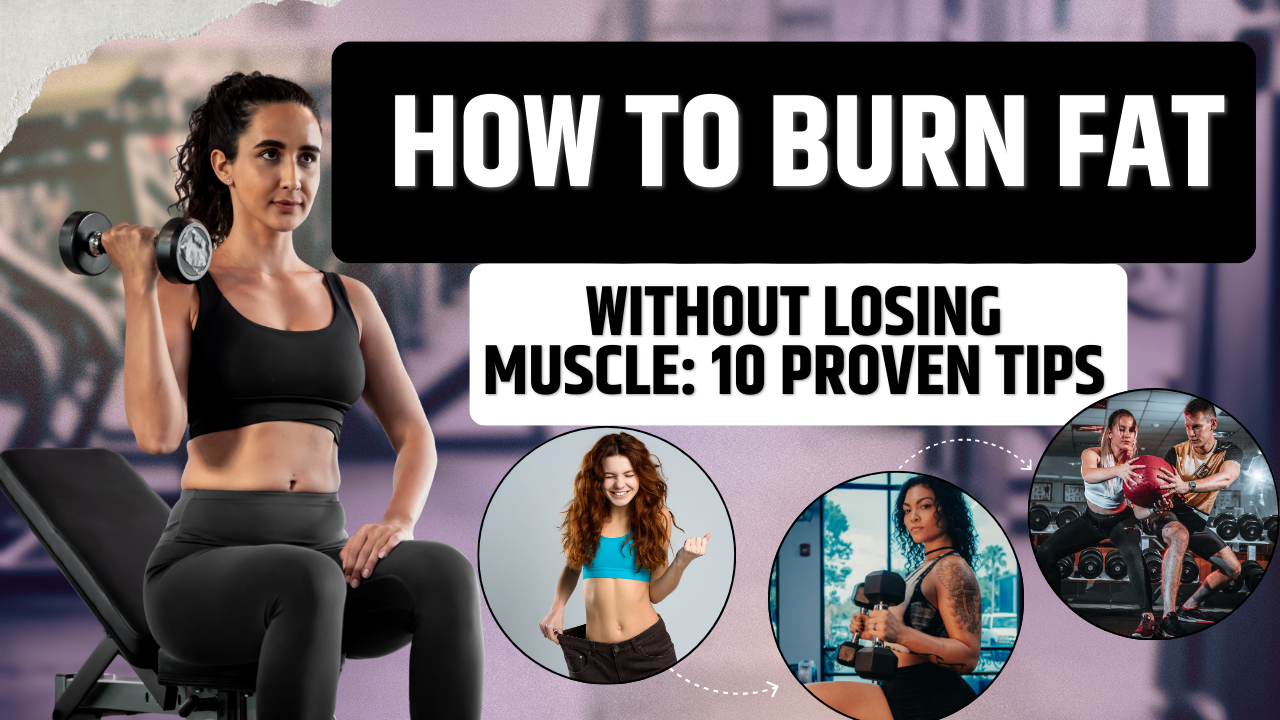In a world where fitness influencers and high-tech gym routines dominate social media, it can seem like losing weight without going to the gym is impossible. However, the truth is, you can lose weight effectively without ever touching a dumbbell or using a treadmill. The key is understanding how weight loss really works.
Weight loss is not about extreme workouts or hours in the gym. It’s about creating a balance between what you eat, your daily activity, and how you take care of your body. Small, consistent changes in your diet, habits, and lifestyle can make a significant impact over time.
This article will explore the core principles of weight loss, why it’s important, and most importantly, offer practical strategies that don’t require a gym. These strategies can help you shed pounds, stay healthy, and maintain long-term results without stepping into a fitness center.
Understanding Weight Loss

What Is Weight Loss ?
Weight loss is the process of reducing total body mass, mainly through the loss of body fat. In some cases, it can also involve losing water, muscle mass, or bone mineral density. However, the focus should always be on fat loss for a healthy approach to weight management.
Healthy weight loss aims to reduce fat while preserving lean muscle mass. This not only helps in improving body composition but also promotes better overall health. By maintaining muscle, the body can stay stronger and more efficient, leading to sustainable results and improved well-being.
How Does Weight Loss Occur ?
At its core, weight loss is about caloric balance:
When you burn more calories than you consume, your body enters a state known as a caloric deficit. This means your body needs to use stored energy, primarily from fat reserves, to make up for the difference, leading to weight loss over time.
On the other hand, if you consume more calories than your body burns, this creates a caloric surplus. In this case, the extra calories that aren’t used for energy are stored in the body, typically as fat, which results in weight gain. Managing your caloric intake and expenditure is key to controlling your weight.
The key is to create a sustainable caloric deficit through diet, lifestyle changes, and increased physical activity—even if that activity doesn’t take place in a gym.
Why Weight Loss Matters
While society often focuses on weight for aesthetic reasons, the health implications are far more critical.
Health Benefits of Weight Loss:
Reduced Risk of Chronic Diseases: Maintaining a healthy weight can significantly lower the risk of developing chronic conditions such as type 2 diabetes, heart disease, stroke, and certain types of cancer. By managing your weight, your body is better equipped to regulate blood sugar, cholesterol levels, and overall cardiovascular health.
Improved Mobility and Joint Health: Carrying less weight reduces the pressure and strain on your joints, especially in areas like the knees and hips. This can lead to better joint function, less pain, and improved flexibility, making everyday movements easier and more comfortable.
Better Sleep: Achieving and maintaining a healthy weight can help reduce issues like sleep apnea, a condition where breathing is repeatedly interrupted during sleep. This, in turn, improves overall sleep quality, leading to more restful and restorative sleep.
Increased Energy: When your body operates efficiently, with a balanced metabolism and less physical strain, it naturally results in higher energy levels. You’ll feel more energized throughout the day, making it easier to stay active and tackle daily tasks.
Enhanced Mental Health: Losing weight can lead to improved self-esteem and a more positive body image. It also helps reduce anxiety and lowers the risk of depression, contributing to better mental well-being and a more positive outlook on life.
Even modest weight loss (5–10% of your body weight) can significantly impact your health.
Key Points to Know About Weight Loss:
Before exploring gym-free methods, let’s clarify a few fundamentals:
Diet Plays a Bigger Role Than Exercise
Research consistently shows that diet is a more significant factor in weight loss than physical activity. While exercise is important for overall health and fitness, you can’t “out-exercise” a poor diet. What you eat directly impacts your body’s ability to lose weight, as it determines how many calories you consume and the nutrients your body gets. Without proper nutrition, no amount of exercise will make up for unhealthy eating habits.
Consistency Beats Intensity
You don’t need to engage in intense, hour-long workouts every day to achieve lasting weight loss. The key to success lies in building consistent, sustainable habits that you can maintain long-term. Even mild forms of daily exercise, like walking or stretching, can have a significant impact over time. The more you make healthy habits a regular part of your routine, the better your chances for long-term success, compared to pushing yourself too hard in short bursts.
Progress Isn’t Linear
Weight loss doesn’t always happen in a straight line. You may not see immediate changes on the scale, but that doesn’t mean you’re not making progress. You might lose inches around your waist or notice your clothes fitting better, even if the number on the scale stays the same. It’s important to focus on overall health improvements, such as better energy, improved mood, and physical changes, rather than obsessing over daily or weekly weight fluctuations.
Mindset Matters
Weight loss is as much about mental discipline as it is about physical effort. It’s essential to stay patient and stay focused on your goals, even when progress feels slow. Maintaining a positive mindset, being kind to yourself when things don’t go as planned, and recognizing that setbacks are a normal part of the journey can help you stay on track. The mental aspect of weight loss is crucial for maintaining motivation and long-term success.
How to Lose Weight Without the Gym: Proven Strategies
Now, let’s dive into actionable, gym-free strategies that help you burn fat, lose weight, and boost your overall health.
1. Create a Calorie Deficit Through Diet

The most effective way to lose weight is by creating a caloric deficit, which means consuming fewer calories than your body requires to maintain its current weight. When you take in fewer calories, your body starts using stored fat for energy, leading to weight loss. This approach is simple yet highly effective, and it forms the foundation of most successful weight loss strategies, whether through diet, exercise, or a combination of both.
How to Do It:
Use apps like MyFitnessPal or Cronometer to track your food intake and stay mindful of your calorie consumption.
Cut down on portion sizes, particularly for high-calorie foods such as oils, cheese, and desserts.
Prioritize nutrient-dense, low-calorie foods like vegetables, lean proteins, fruits, and whole grains to nourish your body while keeping calories in check.
For example, swapping a 500-calorie dessert for a 150-calorie fruit bowl can save 2,450 calories in a week. This simple change could lead to a weight loss of nearly ¾ of a pound of fat, showing how small adjustments can add up over time.
2. Walk More Throughout the Day
Walking is often underrated as an effective weight loss tool. It’s a simple, low-impact activity that anyone can do, regardless of fitness level. Walking helps burn calories, improve cardiovascular health, and boost metabolism, making it a great choice for those looking to lose weight. It’s also easy to incorporate into daily life, whether it’s a walk around the neighborhood or a longer hike. Consistency is key, and by walking regularly, you can make significant progress in your weight loss journey without the need for intense workouts.
How to Maximize It:
Aim to take 7,000–10,000 steps each day to stay active and support weight loss.
Consider walking after meals to aid digestion and help regulate blood sugar levels.
Use your walks as an opportunity to listen to podcasts, catch up on calls, or clear your mind for some mental relaxation.
Just 30 minutes of brisk walking can burn about 150–200 calories depending on weight and pace.
3. Practice Portion Control and Mindful Eating

Mindless snacking and oversized portions are key factors that contribute to weight gain. Often, we eat out of habit or boredom, consuming extra calories without realizing it. Large portion sizes, especially when dining out or eating packaged foods, can lead to overeating and surpassing our daily caloric needs. By being mindful of what and how much we eat, we can reduce these habits. Paying attention to portion sizes and choosing healthier snacks can help maintain a balanced diet and support weight management in the long term.
Strategies:
Use smaller plates to naturally help reduce portion sizes and prevent overeating.
Avoid eating in front of screens, as it can distract you and lead to mindless overeating.
Eat slowly and enjoy each bite. This gives your brain time to register fullness, preventing overconsumption.
Being mindful helps prevent unnecessary calorie consumption and reduces emotional eating.
4. Drink More Water
Staying hydrated is essential for overall health and plays a key role in weight management. Drinking enough water helps regulate metabolism, supports digestion, and can prevent overeating by keeping you feeling full. Sometimes, thirst can be mistaken for hunger, leading to unnecessary snacking. By ensuring you’re properly hydrated, you can control cravings and maintain a balanced diet. Additionally, drinking water before meals can help you feel fuller, making it easier to control portion sizes and avoid overeating, ultimately supporting your weight loss or maintenance goals.
Benefits of Drinking Water:
Helps curb hunger, as thirst is often confused with hunger.
Aids in digestion and boosts metabolism.
Serves as a healthier alternative to calorie-dense drinks like soda and juice.
Pro tip: Drink a glass of water 20 minutes before meals to naturally eat less.
5. Sleep More, Stress Less
Lack of sleep and high stress can significantly affect weight loss efforts. When you don’t get enough rest, it can increase hunger hormones like ghrelin, making you feel hungrier and more likely to overeat. Additionally, stress can lead to higher cortisol levels, which may slow down your metabolism and encourage the body to store fat. Both poor sleep and high stress disrupt the body’s natural balance, making it harder to lose weight. Prioritizing rest and stress management is crucial for supporting healthy weight loss and overall well-being.
What to Do:
Aim for 7–9 hours of quality sleep each night.
Develop a wind-down routine (no screens, warm bath, reading).
Manage stress through breathing exercises, journaling, or meditation.
Your hormones (and waistline) will thank you.
6. Eat More Protein
Protein is a key ally in your weight loss journey. It helps build and maintain lean muscle mass, which boosts your metabolism and aids in burning more calories. Eating protein-rich foods also promotes satiety, helping you feel fuller for longer and reducing the likelihood of overeating. Additionally, protein requires more energy for digestion compared to fats and carbohydrates, further supporting weight loss. Incorporating sources of protein like lean meats, beans, and nuts into your diet can enhance your efforts and help you reach your weight loss goals more effectively.
Why Protein Helps:
Increases satiety (feeling full longer).
Requires more energy to digest (thermic effect of food).
Helps preserve lean muscle mass, which burns more calories at rest.
Add protein to every meal—think eggs, chicken, Greek yogurt, lentils, or tofu.
7. Cut Liquid Calories

Liquid calories can easily go unnoticed but add up fast. Drinks like sugary sodas, flavored coffees, and juices often contain high amounts of calories that don’t satisfy hunger. Since they don’t fill you up, it’s easy to consume more than you realize, hindering your weight loss progress. Being mindful of liquid calories and choosing healthier options like water or unsweetened tea can help manage overall calorie intake.
Common Offenders:
Sugary coffees
Alcohol
Fruit juices
Soft drinks
Swap them for water, herbal tea, black coffee, or infused water to stay hydrated without added calories.
8. Try Intermittent Fasting
Intermittent Fasting (IF) can be an effective method for reducing calorie intake without the need for strict dieting. By alternating between periods of eating and fasting, it naturally limits the time available to consume food, helping control overall calorie intake. IF can also improve metabolism and support fat loss while allowing flexibility in meal choices, making it a sustainable approach to weight management.
Popular Methods:
16:8 method: Eat during an 8-hour window and fast for 16 hours.
Alternate-day fasting: Eat every other day, or reduce intake dramatically on fasting days.
Always consult a healthcare provider before starting any fasting regimen.
9. Increase NEAT (Non-Exercise Activity Thermogenesis)
NEAT, or Non-Exercise Activity Thermogenesis, includes all the calories your body burns through everyday activities that aren’t formal exercise. This can involve walking around the house, cleaning, gardening, fidgeting, or taking the stairs. Although these movements may seem minor, they can add up significantly over time and contribute to weight loss. Increasing your daily NEAT is a simple and effective way to boost your overall calorie burn.
Ways to Boost NEAT:
Take walking meetings or phone calls
Do housework, gardening, or light stretching
Use a standing desk
NEAT can account for hundreds of calories per day, making it a crucial part of gym-free weight loss.
10. Cook at Home More Often
Eating out frequently can make it harder to control your food choices, as you have less influence over ingredients, cooking methods, and portion sizes. Many restaurant meals are high in calories, fats, and added sugars, which can quickly derail your weight loss efforts. Even healthy-sounding options may contain hidden extras. Limiting how often you eat out or making smarter choices when you do can help you stay on track with your goals.
Benefits of Home Cooking:
You control the oils, salt, and sugar used
Helps you stick to your calorie goals
Encourages mindful, balanced eating
Try meal prepping on weekends or using simple recipes that prioritize whole foods.
11. Reduce Processed Foods and Sugar

Processed foods can quietly undermine your weight loss goals. They often contain hidden calories, unhealthy trans fats, and added sugars that increase your overall intake without providing real nutrition. These ingredients can lead to overeating by making you feel less satisfied, and they may slow down your metabolism. Choosing whole, minimally processed foods instead helps you stay fuller longer and supports healthier, more sustainable weight loss progress.
Cut Back On:
White bread, chips, cookies
Sweetened drinks
Ready-to-eat frozen meals
Instead, eat whole foods: veggies, fruits, legumes, whole grains, and lean meats.
12. Stay Accountable
Having accountability is a key part of staying consistent with your weight loss journey. Whether you check in with a friend, write in a journal, or use an app to track your progress, accountability helps keep you focused and motivated. It provides support, helps you recognize patterns, and encourages healthy habits. When someone or something is there to remind you of your goals, it’s easier to stay committed and make lasting changes.
Tips:
Track your progress weekly (not daily).
Join an online support group or community.
Share your goals with a friend or coach.
Progress is easier to achieve when you’re not going at it alone.
Conclusion
Losing weight without ever going to the gym is not only possible—it’s completely realistic when you adopt the right habits and mindset. Success starts with being mindful of what you eat, staying consistent with healthy choices, and finding ways to move more throughout the day. Simple daily activities like walking, stretching, or even household chores can make a big difference over time. Prioritizing your mental well-being and making small, sustainable changes to your routine are just as important as physical effort.
The key is to focus on what works for you. You don’t need to follow extreme diets or intense workout plans to see progress. Instead, choose a path you can maintain comfortably. The most effective weight loss plan is one that fits your lifestyle and feels manageable. In the long run, consistency and balance will bring you real, lasting results—no gym required.
FAQs
1. Can I really lose weight without exercising at a gym ?
Yes, you can. Weight loss mainly depends on eating fewer calories than your body uses. Daily movement, healthy eating, and lifestyle changes are key—even without formal workouts.
2. What are simple ways to stay active without gym workouts ?
Walking, cleaning, gardening, using stairs, and stretching are great ways to stay active. These everyday activities help burn calories and support weight loss.
3. How important is diet in losing weight ?
Diet plays a major role. You can’t out-exercise a poor diet. Eating whole, nutritious foods and managing portions are essential for healthy, lasting weight loss.
4. Will skipping meals help me lose weight faster ?
Skipping meals can slow metabolism and increase hunger later. It’s better to eat regular, balanced meals to manage hunger and energy.
5. How do I stay motivated at home ?
Track your progress, set small goals, and find support through friends, apps, or journaling. Staying consistent and celebrating small wins can keep you on track.

